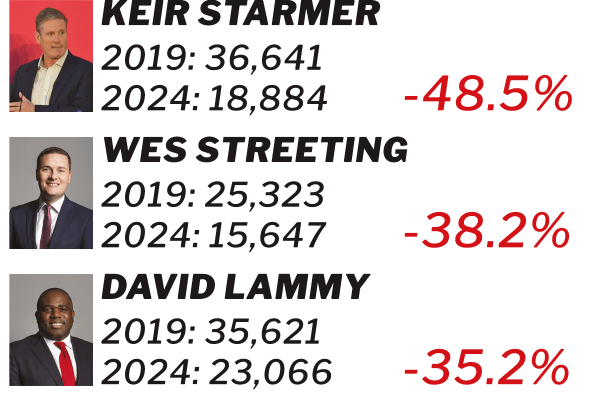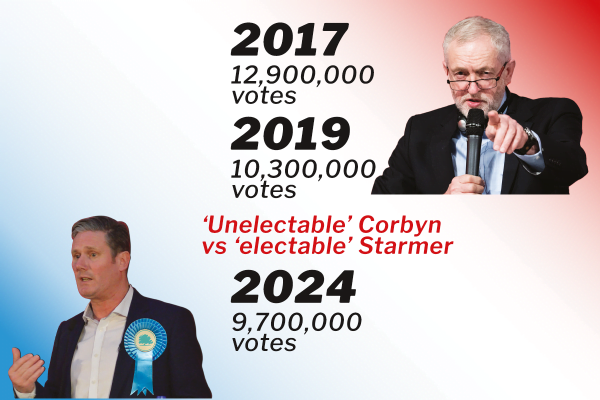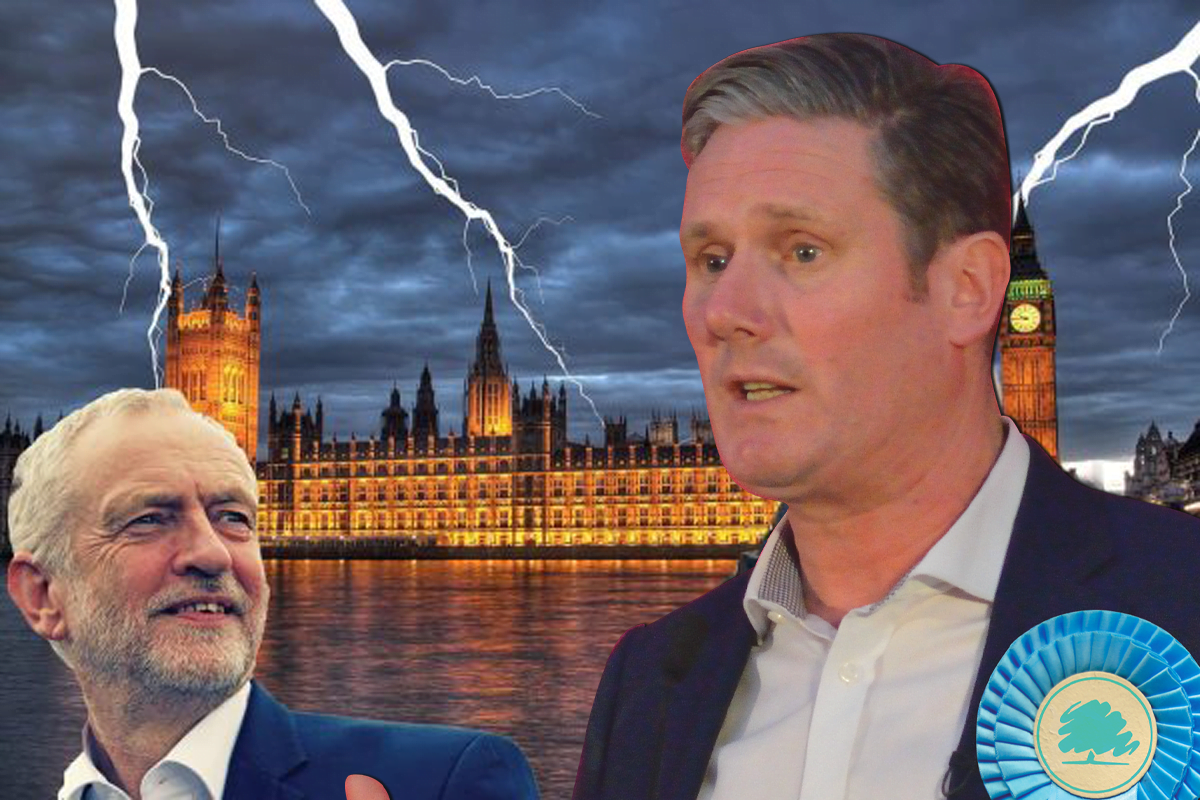The capitalist press has dedicated many lines recently to the surge in support seen for Nigel Farage’s Reform UK in the latest election. But alongside this haemorrhage of votes away from the Tories to the right, there was an equally important shift to the left of Labour.
The truth is that Britain’s first-past-the-post electoral system provides an extremely distorted snapshot of society, obscuring the real mood of distrust and bitterness felt towards the establishment parties.
Starmer’s Labour were able to win almost two-thirds of seats in the House of Commons with only one-third of the vote. And this was with an almost record low turnout of just 60 percent – the second lowest for a general election since 1885.
Furthermore, while overall turnout fell by more than seven percentage points nationally compared to 2019, in seats that Labour won at the last election, turnout dropped by almost ten points.
This shows that, whilst there was a strong desire to kick out the Tories, there was also little enthusiasm for Starmer’s Labour.
Protest votes
Labour may have won a big majority. But despite unfavourable odds, voters still managed to deliver the party a bloody nose in a number of areas.

The Green Party, in particular, benefitted from the desire to register a protest against Labour, racking up seven percent of the vote, and quadrupling their number of seats from one to four.
More impressively, in many respects, were the victories – and close second places – won by a string of independent candidates.
Overall, 459 independents stood in this election – accounting for 10 percent of all candidates, and more than double the number in 2019. Added to this were a variety of other protest candidates and representatives from various left parties, who all took votes off of Labour.
The most high profile of these was Jeremy Corbyn in Islington North, who won 7,000 more votes than his Labour opponent – and over 5,000 more than Keir Starmer achieved in the neighbouring constituency of Holborn & St Pancras.
Corbyn’s win will be all the more grating for the Labour leader, given that he actively channelled the party’s resources towards Islington, in the hope of removing his predecessor from Parliament.
Starmer, by contrast, saw his own vote count halve, from 36,641 in 2019 to 18,884 in this election, with Corbyn-supporter Andrew Feinstein coming second on 19 percent.
Across the country, meanwhile, four other pro-Palestine independent candidates denied Labour a victory: Shockat Adam in Leicester South, who unseated Starmerite stooge Jonathan Ashworth; Ayoub Khan in Birmingham Perry Barr; Adnan Hussain in Blackburn; and Iqbal Mohamed in Dewsbury and Batley.
“This is for the people of Gaza,” declared Adam when the result was announced in Leicester South.
Labour challenged
Elsewhere, a whole host of other hated Labour figures were given a fright.
In Ilford North, NHS-privatiser-in-chief Wes Streeting clung to his seat by the skin of his teeth, with his majority whittled down to just 528 by challenger Leanne Mohamad.
In Tottenham, north London, new foreign secretary and genocide supporter David Lammy lost 12,555 votes, with the majority of this going to the Greens and independent Nandita Lal.
In Bethnal Green & Stepney, incumbent Rushanara Ali won by just over 1,500 votes, with independent Ajmal Masroor coming second, as the local Muslim and Asian community mobilised in response to Labour’s backing for Israel and racist attacks against Bangladeshis.

In Birmingham, Labour right-wingers Jess Phillips and Liam Byrne narrowly held onto the city’s Yardley and Hodge Hill constituencies, respectively, with the Workers Party coming second in both cases.
In Rochdale, having dealt Labour a humiliating blow in the constituency’s by-election earlier this year, George Galloway almost repeated the trick, coming second by less than 1,500 votes.
And in Stratford & Bow, the total pro-Palestine protest vote was almost 40 percent, not far behind Labour’s winning share. This included 1,791 votes for revolutionary communist Fiona Lali (see back page).
In Chingford & Woodford Green, meanwhile, Labour’s scandalous last-minute deselection of Faiza Shaheen split the anti-Tory vote and allowed Conservative cretin Iain Duncan Smith to hold onto his seat.
Broken status quo
Overall, the combined share of the vote going to the Tories and Labour was at its lowest ever. At the same time, five independents and four Greens now sit on the opposition benches.
By comparison, in the last five decades, just three independent MPs have won in a general election. And since 1950, there have only been 13 different independent and minor party MPs in Parliament.
The real picture, then, is one of political polarisation and fragmentation. Far from seeing an endorsement of the establishment, if we peer below the surface, we see a widespread rejection of capitalism’s rotten status quo.
The old order is breaking down. There is a burning anger in society, and a yearning for a political reference point that can channel this indignation and discontent, in order to transform society in the interest of the many.
With your help – through continued organisation, education, and agitation – the Revolutionary Communist Party can become this lodestar for workers and youth.






